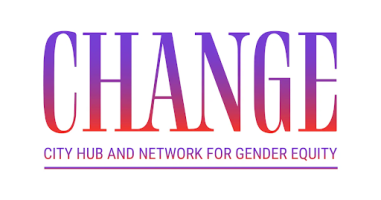
Feminist Urban Design: A Gender-Inclusive Framework for Cities
City Hub and Network for Gender Equity - CHANGE
Civil Society
Open Data Watch
Global
The Gender-Inclusive Data Framework is designed to help decision-makers quickly evaluate their city's progress toward gender equity across multiple metrics and learn from the policies and programs of other cities within the CHANGE network to improve outcomes. It also addresses key challenges, such as the lack of inclusive data—especially gender- and sex-disaggregated data—variations in data collection methods, and the difficulty in linking outcomes to specific urban policies. By overcoming these barriers, our goal is to provide a comprehensive understanding of gender plurality in local governance processes and outcomes, enhancing the effectiveness of policies that promote gender equity in diverse urban settings. Ultimately, we aim not only to develop a robust framework and data collection tool, but also to create a collaborative platform where cities can exchange experiences and insights, driving progress toward gender equity in urban environments.
Gender data is critical to inform inclusive urbanism and enhance gender equity in urban spaces because it captures differences in the status, conditions, and experiences of men, women, and non-binary individuals in various aspects of life. Yet, municipalities often struggle with detailed gender data due to challenges such as limited resources, lack of technical expertise, inadequate data collection methods, fragmented systems, and political or cultural resistance. These gaps impede policymakers and urban planners from creating inclusive spaces and effective policies that address the unique challenges faced by women, non-binary individuals, and other marginalized groups. This commitment aims to overcome these challenges by developing a comprehensive gender-inclusive data framework, equipping cities with the tools they need to assess progress, learn from others, and enhance gender data collection, ultimately fostering gender equity in urban environments.
This commitment focuses on developing and implementing a comprehensive Gender-Inclusive Data Framework and a Gender Data Collection Tool specifically designed for urban contexts. The tool integrates traditional and non-traditional data sources, offering a holistic view of gender equity across cities. Funded by the CHANGE network, the framework aims to assess and advance gender equity in urban settings by creating innovative proxy measures that capture the complexities of gender dynamics, while ensuring consistent, high-quality data collection.
The initiative began with a thorough desk review conducted by DPA data analysts, under Open Data Watch’s guidance, evaluating the state of gender data collection, governance, policies, and programs in the pilot cities. This review identified unique data practices, gaps, and challenges specific to each city, while assessing data governance structures in relation to gender mainstreaming and policies promoting gender equity. Special attention was also given to the inclusion of women and gender-diverse groups in decision-making processes.
Next, the project will define Dimensions, Indicators, and Monitoring Proxies to capture gendered experiences and outcomes in urban settings. This flexible framework will support longitudinal assessments and cross-city learning, providing cities with a tool to track and compare progress.
Additionally, a scoring methodology will be developed to standardize data across cities, enabling comparable assessments of gender-related outcomes.
To ensure the framework’s practical applicability, we will conduct interviews with pilot city representatives to validate findings and fine-tune the framework. The next phase will involve developing the Gender Data Collection Tool and providing virtual training to equip cities with the knowledge and skills needed to effectively use both the framework and the tool.
A Guidance Note will also be developed to ensure consistent, accurate data collection across CHANGE cities, ensuring the framework’s long-term value in promoting gender equity in urban settings.
To monitor progress and evaluate the success of this commitment, one-on-one consultative interviews will be conducted with representatives from the pilot cities. These interviews will provide in-depth feedback on the framework, ensuring its theoretical robustness and practical applicability. Additionally, the interviews will assess the ease of implementing the methodologies outlined in the 'Gender-Inclusive City' blueprint, determining whether decision-makers can effectively apply this framework within their local communities and what can be done to assist them.
Moreover, DPA, in collaboration with CHANGE, will establish the Council for the Orientation of Development and Ethics (CODE), composed of stakeholders from various sectors. This council will play a crucial role in triangulating and validating the final study results. The CODE meeting, which will be scheduled for late November, will be held virtually to ensure comprehensive documentation. These steps will ensure ongoing assessment, the incorporation of feedback, and the validation of outcomes, keeping the project aligned with its objectives.
